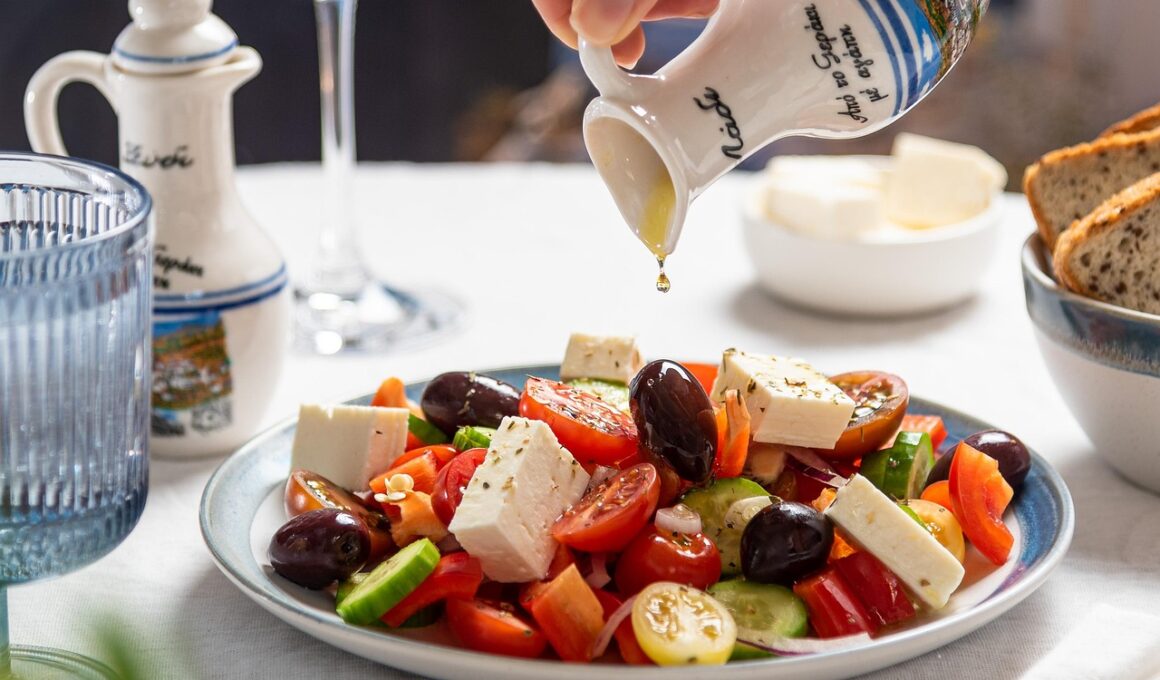How Food and Nutrition While Traveling Influence Stress Management
Traveling often comes with its own unique set of challenges that can lead to stress. One essential element that can significantly influence your stress levels during a trip is food and nutrition. A well-balanced diet helps to maintain your energy levels and overall mood. The right types of food can help you manage your stress better, allowing you to enjoy your journey. Foods rich in vitamins and minerals, such as fruits, vegetables, and whole grains, can enhance your brain function and emotional health. On the other hand, overly processed foods can negatively affect your energy and contribute to stress. Aim to pack healthy snacks, such as nuts or yogurt, rather than opting for candy and chips. Staying hydrated is equally important; often, people overlook the significance of sufficient water intake during travel. Proper hydration can improve cognitive function and emotional stability, helping you to handle the unexpected situations that travel often brings. Finally, planning your meals ahead of time can alleviate much of the anxiety associated with food choices while on the road.
Furthermore, being mindful of portion sizes while dining out during travels is crucial. When consuming large meals, it can lead to feelings of lethargy and discomfort. Instead, consider sharing dishes or opting for smaller appetizer portions to maintain energy levels. Preparing meals in advance, if possible, is another effective strategy for managing stress. This helps you control what you eat and avoid unhealthy options that may compromise your health and well-being. Another critical aspect of nutrition is the timing of your meals. Regular eating routines can help stabilize your blood sugar levels and mood. If intermittent fasting is not suitable for your lifestyle, ensure you have a solid routine that includes meals throughout your day. Moreover, try to maintain a balance between indulgent experiences and healthy options. Treating yourself to local cuisine is part of the travel experience, and you should embrace it. However, moderation is key! Search for a balance that satisfies your cravings and keeps your well-being in check, combining local culinary delights with nutritious choices.
Effects of Local Cuisine on Stress
Exploring local cuisine while traveling can indeed be both a joy and a source of stress. Deciding what to eat can sometimes feel overwhelming due to the vast array of options available. To ease the tension around food choices, consider embracing a few local dishes rather than sampling everything at once. This way, you can focus on enjoying each meal without feeling rushed or stressed about the next meal. Additionally, try to seek recommendations from locals or trusted travel guides. They can direct you to restaurants or street vendors that serve authentic and nutritious local fare, ensuring that you get the best of both worlds. Familiarizing yourself with the ingredients commonly used in local dishes can also help you make informed choices that suit your dietary needs. Pay attention to how specific foods affect your body and feelings, as this awareness can guide your selections moving forward. Maintain an open mind on cultural cuisines, as they may include beneficial ingredients or cooking methods that enhance both the flavor and nutritional profile, aiding you in achieving stress relief.
Moreover, being aware of food allergies and intolerances should be priorities when venturing abroad. Language barriers may complicate communication, making it essential to know specific terms related to your dietary restrictions. Preparing a reference card that outlines your allergies and is translated into the local language can streamline this process and reduce the risk of exposure. This small preparation can also boost your confidence when ordering meals, contributing positively to your overall stress management. Furthermore, exploring food markets can provide unique opportunities for both cultural immersion and healthy eating. Visiting local markets allows you to connect with the environment and local culture, while giving you access to fresh produce. Engaging with vendors and seeking advice on meal preparations can also be enjoyable and informative. Creating your meals can offer relaxation, as it allows you to engage in mindfulness practices. Take time to relish the entire process, from selecting ingredients to cooking; this creativity can serve as an excellent way to manage stress, promoting peace in your travel experience.
Mindfulness and Eating Habits
Incorporating mindfulness into your eating habits while traveling plays an essential role in stress management. Savoring each bite truly enhances the enjoyment of your meals and fosters a deeper connection with your food. When you focus on the flavors and textures without distractions, it transforms dining into an enriching experience rather than a mere necessity. This conscious approach also helps in recognizing fullness, preventing overindulgence. To practice mindfulness, consider setting aside time dedicated solely to eating, devoid of external distractions such as phones or television. This can help ground your thoughts, making it easier to manage stress. Engaging in conversations with dining companions can enhance this experience, creating memorable moments that enhance your mood. Furthermore, exploring the cultural significance of certain dishes can also add depth to your meals, transforming them from simple sustenance into cherished experiences. Researching beforehand can help you appreciate the unique history behind meals served around the world. By consuming food mindfully and contextually, you can create more stress-relieving moments while on your travels, finding in these meals both nourishment and joy.
The impact of dietary supplements on traveling is another aspect to consider in your stress management toolkit. During travels, changes in environment, climate, and pace can influence your nutrient intake and overall health. Sometimes, it may be beneficial to supplement your diet with vitamins and minerals to support your body’s needs under varying conditions. For instance, magnesium can help alleviate stress, while omega-3 fatty acids promote heart health and vitality. Always remember to consult your healthcare provider before introducing new supplements into your routine, particularly while traveling. This precaution ensures that you seamlessly integrate these additions without risk, tailoring them to your personal needs. Additionally, it’s vital to remain cautious about the quality of supplements during international travel, as local regulations and standards may differ widely. Seek reputable brands and only purchase from trusted sources, as this protects your health while abroad. Remember, nourishing your body through food and supplements equips you physically and emotionally to face the adventures that come your way, providing resilience against stress.
Conclusion: Savoring Health on the Road
In conclusion, understanding how food and nutrition impact stress management during your travels is essential for a fulfilling experience. From making informed choices in local cuisine to preparing nutritious meals and snacks, every effort contributes to your well-being. Make meal planning a priority, ensuring you balance enjoying local flavors while maintaining your nutrition levels. Engage in mindful eating practices, savoring your food and the atmosphere around you. Don’t hesitate to explore local markets, immerse yourself in culinary adventures, and connect with the local culture. Incorporating dietary supplements thoughtfully can also add to your health arsenal when away from home. It’s not only about satisfying your hunger; it is about creating memories, developing relationships, and investing in your health while exploring the world. By combining these strategies, you can significantly alleviate the stress associated with traveling, paving the way for a joyful and enriching journey. Ultimately, savoring every experience, from meals to landscapes, allows you to balance pleasure with purpose on your travels.
In summary, prioritizing your education around food, nutrition, and stress while traveling can dramatically improve your experiences. Taking the time to learn about how to eat well during trips enhances not only your health but also your mindset. As you embark on your next journey, remember that food is not just sustenance but a part of your travel experience that can positively influence stress management. Enjoy the diversity of flavors, engage in local options mindfully, and be considerate of your body’s needs. This approach ultimately fosters deeper connections with the people and cultures you encounter, leading to a fulfilling travel journey filled with wonderful memories.


